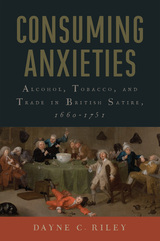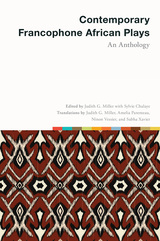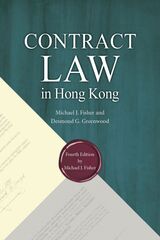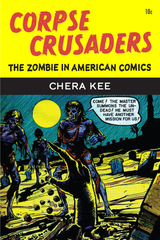34 start with A start with A
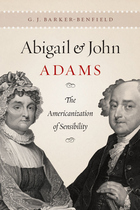
During the many years that they were separated by the perils of the American Revolution, John and Abigail Adams exchanged hundreds of letters. Writing to each other of public events and private feelings, loyalty and love, revolution and parenting, they wove a tapestry of correspondence that has become a cherished part of American history and literature.
With Abigail and John Adams, historian G. J. Barker-Benfield mines those familiar letters to a new purpose: teasing out the ways in which they reflected—and helped transform—a language of sensibility, inherited from Britain but, amid the revolutionary fervor, becoming Americanized. Sensibility—a heightened moral consciousness of feeling, rooted in the theories of such thinkers as Descartes, Locke, and Adam Smith and including a “moral sense” akin to the physical senses—threads throughout these letters. As Barker-Benfield makes clear, sensibility was the fertile, humanizing ground on which the Adamses not only founded their marriage, but also the “abhorrence of injustice and inhumanity” they and their contemporaries hoped to plant at the heart of the new nation. Bringing together their correspondence with a wealth of fascinating detail about life and thought, courtship and sex, gender and parenting, and class and politics in the revolutionary generation and beyond, Abigail and John Adams draws a lively, convincing portrait of a marriage endangered by separation, yet surviving by the same ideas and idealism that drove the revolution itself.
A feast of ideas that never neglects the real lives of the man and woman at its center, Abigail and John Adams takes readers into the heart of an unforgettable union in order to illuminate the first days of our nation—and explore our earliest understandings of what it might mean to be an American.

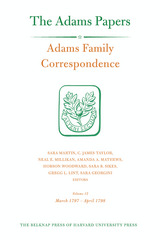
Volume 12 of Adams Family Correspondence, with 276 documents spanning from March 1797 through April 1798, opens with the inauguration of John Adams as president and closes just after details of the XYZ affair are made public in America. Through private networks of correspondence, the Adamses reveal both their individual concerns for the well-being of the nation and the depth of their public and political engagement with the republic. Abigail’s letters to friend and foe demonstrate the important role she played as an unofficial member of the administration. John Quincy and Thomas Boylston’s letters from The Hague, Paris, London, and finally Berlin offer keen observations about the political turmoil in France and its consequences, the shifting European landscape as a result of the war, and court life in Berlin following the coronation of Frederick William III.
In the midst of crisis, the family’s domestic life and personal connections challenged and sustained them. The marriage of John Quincy and Louisa Catherine Johnson in London in July 1797 gave the family cause for celebration, while John’s appointment of John Quincy as U.S. minister to Prussia created a minor rift as the scrupulous younger Adams struggled with concerns about nepotism. Visits between the elder Adamses and their children Nabby and Charles in New York provided welcome distractions, even as John and Abigail worried about Nabby’s domestic situation. With the characteristic candor and perception expected from the Adamses, this volume again features forthright commentary from one family at the center of it all.
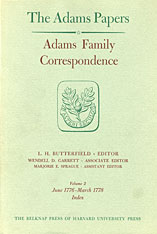
The Adams Family Correspondence, L. H. Butterfield writes, “is an unbroken record of the changing modes of domestic life, religious views and habits, travel, dress, servants, food, schooling, reading, health and medical care, diversions, and every other conceivable aspect of manners and taste among the members of a substantial New England family who lived on both sides of the Atlantic and wrote industriously to each other over a period of more than a century.” These volumes are the first in the estimated twenty or more in Series 2 of The Adams Papers.
Including about six hundred letters to and from various members of the family, the Adams Family Correspondence begins with a series of hitherto unpublished courtship letters between John Adams and Abigail Smith. The weekly and sometimes daily reports by Adams of what was going on in the Continental Congress during the years 1774–1777 are a far fuller and franker record than has been available before. His wife’s letters in reply recount her difficulties in raising a family of young children and operating a farm while war went on not far from her doorstep, refugees inundated Braintree, local epidemics raged, prices soared, and goods and labor became ever scarcer. We learn for the first time that amid these distractions Abigail lost a baby daughter, that getting herself and four children inoculated against smallpox was an agonizing ordeal of months in 1776, that after Burgoyne’s defeat at Saratoga she wrote a long, lecturing letter to her single relative who had chosen the Loyalist side, and that her comments on blundering politicos, lax generals, and unpatriotic neighbors were more frequent and incisive than has been supposed.
Thinking her letters too careless and too intimate for preservation, Abigail Adams pleaded at the end of one of them, written a couple of months before the Declaration of Independence was voted and while British warships hovered within range of her house, “I wish you would burn all my Letters.” To which John Adams replied, “The conclusion of your Letter made my Heart throb, more than a Cannonade would. You bid me burn your Letters. But I must forget you first.”
So he faithfully kept hers, she kept his, and they both kept their children’s. Their grandson Charles Francis Adams chose some of these for publication in a succession of small editions in the nineteenth century, but he was highly selective, and he discreetly pruned away from the letters that he printed much that is both revealing and engaging. Here, as is the practice with all the Adams documents in this edition, every letter used is given in full. The second of these first volumes ends in March 1778 with John Adams on a Continental frigate bound for his first diplomatic mission in Europe, accompanied by his ten-year-old son, John Quincy.
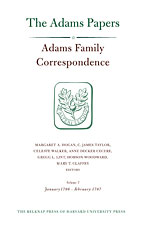
This volume continues the incredible family saga of the Adamses of Massachusetts as told through their myriad letters to one another, to their extended family, and to such other notable correspondents as Thomas Jefferson and Mercy Otis Warren. The book opens in January 1786, when John and Abigail resided at Grosvenor Square in London, partaking of the English social scene, while John made slow progress on negotiations for an Anglo-American commercial treaty. Daughter Abigail ("Nabby"), also in London, had begun a courtship with William Stephens Smith that would culminate in their marriage in June 1786. Back in Massachusetts, John Quincy had rejoined his brothers Charles and Thomas, entered Harvard College, and begun to make preparations to study law.
Writing back and forth across the Atlantic, the Adamses interspersed observations about their own family life--births and deaths, illnesses and marriages, new homes and new jobs, education and finances--with commentary on the most important social and political events of their day, from the scandals in the British royal family to the deteriorating political situation in Massachusetts that eventually culminated in Shays' Rebellion. As in the previous volumes in this series of the Adams Papers, the correspondence presented here offers a unique perspective on the eighteenth century from a preeminent American family.
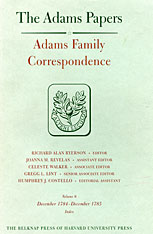
“I cannot O! I cannot be reconcil’d to living as I have done for 3 years past… Will you let me try to soften, if I cannot wholy releave you, from your Burden of Cares and perplexities?” So begins Abigail Adams’s correspondence to her husband in these volumes: a plea to end their long separation, as John Adams represented the United States in Europe while Abigail tended to family and farm in Massachusetts, and passed on to John crucial political information from Congress.
In October 1782, the Adams family was as widely scattered as it would ever be, with young John Quincy Adams in St. Petersburg, John at The Hague, and Abigail in Braintree with her daughter and younger sons. With the summer of 1784, however, Abigail would have her fondest wish, as most of the family reunited to spend nearly a year together in Europe. As the Adams family traveled, and as the children came of age, so their correspondence expanded to include an ever larger and more fascinating range of Cultural topics and international figures. The record of this remarkable expansion, these volumes document John Adams’s diplomatic triumphs, his wife and daughter’s participation in the cosmopolitan scenes of Paris and London, and his son John Quincy’s travels in Europe and America. These pages also welcome Thomas Jefferson, who soon became one of Abigail’s closest friends, into the family correspondence. From the intimacies of the children’s education, sentimental and worldly, to the details of the firm friendship between Abigail and Madame Lafayette, to the grand drama of Edmund Burke and William Pitt the Younger debating in Parliament, the contents of these letters draw an incredibly rich picture of international life in the 1780s and an incomparable portrait of America’s first family of politics and letters.
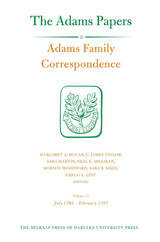
The letters in this volume of Adams Family Correspondence span the period from July 1795 to the eve of John Adams’s inauguration, with the growing partisan divide leading up to the election playing a central role. The fiery debate over funding the Jay Treaty sets the political stage, and the caustic exchanges between Federalists and Democratic-Republicans only grow as rumors surface of George Washington’s impending retirement. From Philadelphia, John’s equanimity in reporting to Abigail and his children on the speculation about the presidential successor gives way to expectation and surprise at the voracity of electioneering among political allies and opponents alike. Although remaining in Quincy throughout this period, Abigail offers keen, even acerbic, commentary on these national events.
From Europe, John Quincy and Thomas Boylston shed light on the rise of the French Directory, the shifts in the continental war, and the struggles within the Batavian government. Their letters also testify to the broader scale of the U.S. presidential election by chronicling French and British attempts to influence American politics. On a more personal note, John Quincy’s engagement to Louisa Catherine Johnson in London opens the next great collection of correspondence documenting the Adams family saga.

John and Abigail Adams remained fully engaged in American political life after they left Washington, DC, for retirement in Quincy. A highlight of Volume 15 of Adams Family Correspondence is a series of letters between Abigail Adams and Thomas Jefferson that debated fundamental questions of the nation’s tumultuous early years. A new generation rose in prominence in the period covered in the volume, with John Quincy Adams returning from abroad to take a seat in the United States Senate just in time to break with the Federalists and support the Louisiana Purchase. The family commented on other events of the era—Jefferson’s dismantling of John Adams’s judicial reforms, the mobilization of the US Navy for the Barbary wars, the growing bane of British impressment, and the duel that killed Alexander Hamilton.
Equally compelling family stories emerge in the volume’s 251 letters. The failure of a British banking firm proved calamitous to the family’s finances, compelling John Quincy to quietly finance his parents’ retirement. Thomas Boylston Adams, acting as an occasional editor of the Port Folio, carved out his public persona as a man of letters. Louisa Catherine Adams wrote of motherhood and adjusting to a new country of residence while providing a spirited perspective on Washington society. As always, the heart of Adams Family Correspondence is Abigail Adams, who survived a near-fatal fall to continue providing letters of insight and wit that once again show why the correspondence of the Adams family is a national treasure.

John and Abigail Adams’ reflections on an emerging nation as they move into the new President’s House in Washington, D.C., are a highlight of the nearly 280 letters written over seventeen months printed in volume 14 of Adams Family Correspondence. The volume opens with the Adamses’ public and private expressions on the death of George Washington and concludes with John’s defeat in the contentious presidential election of 1800. Electoral College maneuvering, charges of sedition, and state-by-state strategizing are debated by the Adamses and their correspondents as the election advances toward deadlock and finally victory for Thomas Jefferson in the House of Representatives. John’s retirement from public life had some sweet mixed with the bitter. The U.S. mission to France resulted in the Convention of 1800 that ended the Quasi-War and the so-called midnight appointments at the close of his presidency ushered in the transformative U.S. Supreme Court era of John Marshall, a coda anticipated in Abigail’s request to John in the final days of his administration—“I want to see the list of judges.”
The domestic life of the Adamses was equally dynamic. Abigail and John endured the crushing loss of their son Charles, whose struggle with alcohol ended in repudiation and death in New York. Son Thomas Boylston and daughter Nabby spent the period in relative stability, while John Quincy chronicled a tour of Silesia in letters home from Europe. At the volume’s close, the correspondence between John and Abigail comes to an end. As they retired to Quincy, their rich observations on the formation of the American republic would continue in letters to others if not to each other.

The almost 300 letters in volume 13 of Adams Family Correspondence were written during seventeen tumultuous months of John Adams’s presidency. Consumed with executive duties, he depended on surrogates for much of his correspondence with family members. From Quincy, an ailing Abigail Adams wrote frequent letters to Philadelphia and received lively responses from son Thomas Boylston and the president’s secretary, nephew William Smith Shaw. These letters attest to John’s popularity in the wake of the XYZ Affair. However, they also chronicle passage of the Alien and Sedition Acts and the Kentucky and Virginia Resolutions, which laid the groundwork for future debates on the relative roles of state and federal governments. Following the break in diplomacy with France, John sensed a change in the footing of the French, acted unilaterally in ordering a second mission to seek a negotiated settlement of the Quasi-War, and faced widespread skepticism about his foreign policy as his envoys departed for Europe.
John and Abigail lamented yet another absence from each other. After completing service in Berlin as secretary to diplomat John Quincy, Thomas Boylston established himself as a Philadelphia lawyer, offering thoughtful commentary on political life in the capital. From his post in Prussia, John Quincy struggled with his brother Charles’s mismanagement of his financial affairs, but his letters also provide detailed updates on developments in Europe, including Napoleon’s invasion of Egypt. The candid letters of John and Abigail Adams and their children offer a rich perspective on life in America during its infancy.

This volume offers over 300 letters from the irrepressible Adamses, including many between John and Abigail never before printed. As always, Adams family members serve as important observers of and commentators on national and international events, from America’s growing tensions with Britain and France to its internal struggles with increasingly virulent political factionalism and the Whiskey Rebellion. John, languishing as vice president in Philadelphia, reported extensively on congressional debates and growing divisions within the Washington administration but also found time to improve his sons’ legal education. Abigail’s letters juxtapose her own political insights with lively accounts of her farm management and the day-to-day happenings in Quincy.
The most significant event of the period for the Adams clan was John Quincy’s appointment as U.S. minister resident at The Hague, the beginning of a long and storied diplomatic career. Accompanying him overseas was his brother Thomas Boylston, the only Adams child who had not yet seen Europe. Arriving just as the French Army began its final march into the Netherlands, John Quincy and Thomas Boylston became first-hand observers of the European war and the impact of the French Revolution on the broader society. Back in the United States, Charles continued to build his legal career, expanding his law office and acquiring two clerks, while Nabby’s family grew with the birth of the Adamses’ first granddaughter, Caroline Amelia Smith.

The years 1790 to 1793 marked the beginning of the American republic, a contentious period as the nation struggled to create a functioning government amid increasingly bitter factionalism. On the international stage, the turmoil of the French Revolution raised important questions about the nature of government. As usual, the Adams family found itself in the midst of it all. Vice President John Adams chaired Senate sessions even as he was prevented from participating in any meaningful fashion. Abigail joined him when her health permitted, but even from afar she provided important advice and keen observations on politics and society.
All four Adams children are well represented here, especially Charles and Thomas Boylston, who, for the first time, appear as correspondents in their own right. Both embarked on legal careers, Charles in New York and Thomas in Philadelphia, while John Quincy did the same in Boston. Daughter Nabby cared for her growing family as her ambitious husband, William Stephens Smith, pursued financial schemes. This volume offers both insight into the family and the frank commentary on life that readers have come to expect from the Adamses.

By early 1787, as this latest volume of the award-winning series Adams Family Correspondence opens, John and Abigail Adams were eagerly planning their return home to Massachusetts from Great Britain, frustrated by John's lack of progress in his diplomatic mission and anxious for a reunion with family and friends. Arriving in Massachusetts in mid-1788, they anticipated a quiet retirement from government service as they returned to running their farm. But they barely had time to settle in before they were pulled back into the public sphere by John's election as the first vice president under the new Constitution. Moving to New York City in 1789 with their daughter Nabby, and her family, John and Abigail found themselves once again center stage in American political life.
The Adamses serve as prescient and thoughtful observers of the world around them, from the manners and mores of English court life to the political intrigues of the new federal government in New York. Beyond that wider world, however, these letters observe the more intimate domestic concerns of a New England family. With more of the forthright candor that marks the Adamses' correspondence, this volume offers a unique perspective on a crucial period in American history.

The letters in these volumes, written from both sides of the Atlantic, addressed by and to members of the Adams family, chronicle nearly five years of its history, They were years in which John Adams in successive missions to Europe, accompanied first by one son, then by two, initiated what would be a continuing role for Adamses in three generadons: representing their country and advancing its interests in the capitals of Europe.
John Adams, a troubled but stouthearted Yankee lawyer on the vast new scene of Europe, though always circumspect in familial correspondence in referring to public matters, provides, in his revealing letters about his own health and state of mind, sufficient insight into the difficult relations among the American commissioners, the designs of America's allies, and the diplomatic failures and triumphs he experienced in Paris and the Netherlands to permit some reevaluations of purposes and tactics. With these high matters are mingled the rigors and rewards of travel, concern with his sons' education, books for their reading, Dutch cloth and ribbons for his wife.
Whether Mrs. Adams' letters relate to the upbringing of children, the problems of wartime taxes and inflation, the inferior roles assigned to American women, or her wide historical reading, they bear the marks of distinction of mind and mastery of language that make them timeless.
If the letters of these two are central, those written by others are hardly less interesting, relating as they do to the concerns of young John Quincy at school in Levden and his observations on his way to and during his stay in St. Petersburg at age fourteen: to the adventure-filled return voyage of Charles, aged eleven, to America; to the interests of the younger Abigail maturing in Braintree; to the reactions of sturdy patriots to the tides and rumors of war.
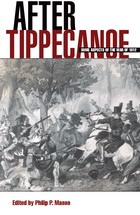
Though the Shawnee chief Tecumseh attempted to form a confederacy of tribes to stem the tide of white settlement in the Old Northwest, in November of 1811, the Americans marched to his village at the mouth of Tippecanoe Creek. The ensuing battle ended all hope of an Indian federation and had far-reaching effects on American and British relations. The British, blamed for providing the Indians with arms, drew the ire of hawks in Congress, who clamored ever more loudly for a war to end England’s power in North America. Revised with a new introduction and updated biographical information, After Tippecanoe contains six papers originally presented as lectures in Windsor, Canada, and Detroit, Michigan, during the winter of 1961–62 by three American and three Canadian historians. Their focus is the War of 1812 as it unfolded in the Great Lakes region, with special emphasis on the conflict in Michigan, New York, and Ontario, Canada.
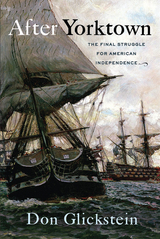
Although most people think the American Revolution ended with the British surrender at Yorktown, Virginia, on October 19, 1781, it did not. The war spread around the world, and exhausted men kept fighting—from the Arctic to Arkansas, from India and Ceylon to Schenectady and South America—while others labored to achieve a final diplomatic resolution.
After Cornwallis’s unexpected loss, George III vowed revenge, while Washington planned his next campaign. Spain, which France had lured into the war, insisted there would be no peace without seizing British-held Gibraltar. Yet the war had spun out of control long before Yorktown. Native Americans and Loyalists continued joint operations against land-hungry rebel settlers from New York to the Mississippi Valley. African American slaves sought freedom with the British. Soon, Britain seized the initiative again with a decisive naval victory in the Caribbean against the Comte de Grasse, the French hero of Yorktown.
In After Yorktown: The Final Struggle for American Independence, Don Glickstein tells the engrossing story of this uncertain and violent time, from the remarkable American and French success in Virginia to the conclusion of the fighting—in India—and then to the last British soldiers leaving America more than two years after Yorktown. Readers will learn about the people—their humor, frustration, fatigue, incredulity, worries; their shock at the savage terrorism each side inflicted; and their surprise at unexpected grace and generosity. Based on an extraordinary range of primary sources, the story encompasses a fascinating cast of characters: a French captain who destroyed a British trading post, but left supplies for Indians to help them through a harsh winter, an American Loyalist releasing a captured Spanish woman in hopes that his act of kindness will result in a prisoner exchange, a Native American leader caught “between two hells” of a fickle ally and a greedy enemy, and the only general to surrender to both George Washington and Napoleon Bonaparte. Finally, the author asks the question we face today: How do you end a war that doesn’t want to end?
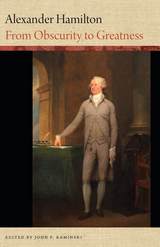
Editor John P. Kaminski has gathered a remarkable collection of quotations by and about Alexander Hamilton that paint for us a nuanced portrait of a complex man. Through his own words and the words of his contemporaries -- including the man who killed him in a duel, Aaron Burr -- we can gain a better understanding of this fascinating man who rose from anonymity on a small Caribbean island to the corridors of power.
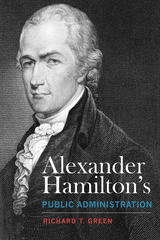
American public administration inherited from Alexander Hamilton a distinct republican framework through which we derive many of our modern governing standards and practices. His administrative theory flowed from his republican vision, prescribing not only the how of administration but also what should be done and why. Administration and policy merged seamlessly in his mind, each conditioning the other. His Anti-Federalist detractors clearly saw this and fought his vision tooth and nail.
That conflict endures to this day because Americans still have not settled on just one vision of the American republic. That is why, Richard Green argues, Hamilton is a pivotal figure in our current reckoning. If we want to more fully understand ourselves and our ways of governing today, we must start by understanding Hamilton, and we cannot do that without exploring his administrative theory and practice in depth.
Alexander Hamilton’s Public Administration considers Hamilton both as a founder of the American republic, steeped in the currents of political philosophy and science of his day, and as its chief administrative theorist and craftsman, deeply involved in establishing the early institutions and policies that would bring his interpretation of the written Constitution to life. Accordingly, this book addresses the complex mix of classical and modern ideas that informed his vision of a modern commercial and administrative republic; the administrative ideas, institutions, and practices that flowed from that vision; and the substantive policies he deemed essential to its realization. Green’s analysis grows out of an immersion in Hamilton’s extant papers, including reports, letters, pamphlets, and essays. Readers will find a comprehensive explanation of his theoretical contributions and a richly detailed account of his ideas and practices in historical context.
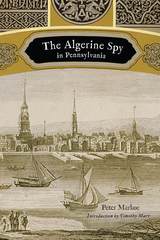
An Important Book in America’s Early Encounter with the Arab World
“A pungent satire on American affairs.” —Samuel Eliot Morison
In 1787, while American sailors languished in a Barbary prison, delegates debated the Constitution in Philadelphia. Despite America’s desire to respond to the crisis, without a central government, the new republic had no means to create a naval force. Enter an anonymously published book, The Algerine Spy in Pennsylvania: or, Letters Written by a Native of Algiers on the Affairs of the United States in America, which began circulating among the delegates. Consisting of a series of letters ostensibly written by an Algerian agent “Mehmet” back to his leader, the spy predicted that the former colonies would never be able to resolve their differences and be “ruined by disunion.” The book created a sensation and it helped tip the balance for those in favor of adopting the new Constitution. Following the Constitution’s final ratification in 1789, the United States created a navy and began asserting its power overseas. With its commentary about men and women, business and pleasure, and historical and religious comparisons between nations, The Algerine Spy in Pennsylvania provides both a contemporary snapshot of early American life and the political ideas of the period. Never before reprinted, and recently rated one of the five best works in the history of America’s encounter with the Arab world, this new edition is edited by historian Timothy Marr, who reconsiders the importance of this early work in the political and literary history of the United States.
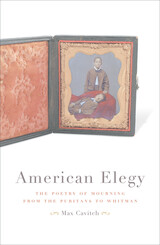
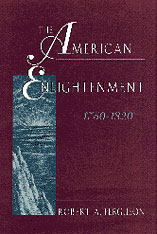
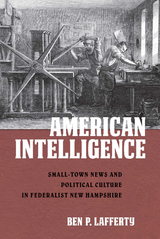
Taking up the New Hampshire newspaper industry as its case study, American Intelligence unpacks the ways in which an unprecedented quantity of printed material was gathered, distributed, marketed, and consumed, as well as the strong influence that it had on the shaping of the American political imagination. Ben P. Lafferty also considers the lives of the printers themselves and asks why so many men chose to pursue such a fraught and turbulent profession. This snapshot resonates with the contemporary media-saturated and politically chaotic age.
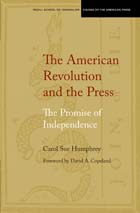
Carol Sue Humphrey’s The American Revolution and the Pressargues that newspapers played an important role during America’s struggle for independence by keeping Americans engaged in the war even when the fighting occurred in distant locales. From the moment that the colonials received word of Britain’s new taxes in 1764 until reports of the peace treaty arrived in 1783, the press constituted the major source of information about events and developments in the conflict with the mother country. Both Benjamin Franklin, one of the Revolution’s greatest leaders, and Ambrose Serle, a Loyalist, described the press as an “engine” that should be used to advance the cause. The efforts of Patriot printers to keep readers informed about the war helped ensure ultimate success by boosting morale and rallying Americans to the cause until victory was achieved. As Humphrey illustrates, Revolutionary-era newspapers provided the political and ideological unity that helped Americans secure their independence and create a new nation.
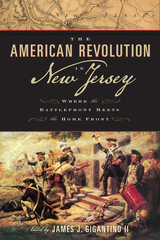
Battles were fought in many colonies during the American Revolution, but New Jersey was home to more sustained and intense fighting over a longer period of time. The nine essays in The American Revolution in New Jersey, depict the many challenges New Jersey residents faced at the intersection of the front lines and the home front.
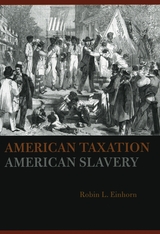
For all the recent attention to the slaveholding of the founding fathers, we still know remarkably little about the influence of slavery on American politics. American Taxation, American Slavery tackles this problem in a new way. Rather than parsing the ideological pronouncements of charismatic slaveholders, it examines the concrete policy decisions that slaveholders and non-slaveholders made in the critical realm of taxation. The result is surprising—that the enduring power of antigovernment rhetoric in the United States stems from the nation’s history of slavery rather than its history of liberty.
We are all familiar with the states’ rights arguments of proslavery politicians who wanted to keep the federal government weak and decentralized. But here Robin Einhorn shows the deep, broad, and continuous influence of slavery on this idea in American politics. From the earliest colonial times right up to the Civil War, slaveholding elites feared strong democratic government as a threat to the institution of slavery. American Taxation, American Slavery shows how their heated battles over taxation, the power to tax, and the distribution of tax burdens were rooted not in debates over personal liberty but rather in the rights of slaveholders to hold human beings as property. Along the way, Einhorn exposes the antidemocratic origins of the popular Jeffersonian rhetoric about weak government by showing that governments were actually more democratic—and stronger—where most people were free.
A strikingly original look at the role of slavery in the making of the United States, American Taxation, American Slavery will prove essential to anyone interested in the history of American government and politics.
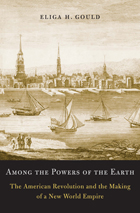
For most Americans, the Revolution’s main achievement is summed up by the phrase “life, liberty, and the pursuit of happiness.” Yet far from a straightforward attempt to be free of Old World laws and customs, the American founding was also a bid for inclusion in the community of nations as it existed in 1776. America aspired to diplomatic recognition under international law and the authority to become a colonizing power itself.
As Eliga Gould shows in this reappraisal of American history, the Revolution was an international transformation of the first importance. To conform to the public law of Europe’s imperial powers, Americans crafted a union nearly as centralized as the one they had overthrown, endured taxes heavier than any they had faced as British colonists, and remained entangled with European Atlantic empires long after the Revolution ended.
No factor weighed more heavily on Americans than the legally plural Atlantic where they hoped to build their empire. Gould follows the region’s transfiguration from a fluid periphery with its own rules and norms to a place where people of all descriptions were expected to abide by the laws of Western Europe—“civilized” laws that precluded neither slavery nor the dispossession of Native Americans.
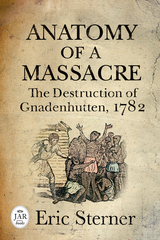
On March 8, 1782, a group of western settlers killed nearly one hundred unarmed and peaceful Indians who had converted to Christianity under the tutelage of missionaries from the Church of the United Brethren. The murders were cold-blooded and heartless; roughly two-thirds of those executed were women and children. Its brutality stunned Benjamin Franklin in far-away France. He wrote: “the abominable Murders committed by some of the frontier People on the poor Moravian Indians, has given me infinite Pain and Vexation. The Dispensations of Providence in this World puzzle my weak Reason. I cannot comprehend why cruel Men should have been permitted thus to destroy their Fellow Creatures.” Since that maelstrom of violence struck the small Indian village of Gnadenhutten, history has treated the episode as a simple morality tale. While there were ample incidents of good and evil on March 8, that summation does not explain what brought murderers and victims together on the banks of the Muskingum River in today’s Ohio. It was actually the culmination of a series of events among different Indian tribes, the British, Congressional authorities at Pittsburgh, the Pennsylvania militia, and key individuals, all of which are lost in contemporary explanations of the massacre.
Anatomy of a Massacre: The Destruction of Gnadenhutten, 1782 fills that void by examining the political maneuvering among white settlers, Continental officials, British officers, western Indian tribes, missionaries, and the Indians practicing Christianity that culminated in the massacre. Uniquely, it follows the developing story from each perspective, using first-person accounts from each group to understand how they saw and experienced the changes on the American frontier. Along the way it profiles some of the key individuals responsible for the way the war unfolded. It is a fresh look at an often mentioned, but seldom understood, episode in the American Revolution.
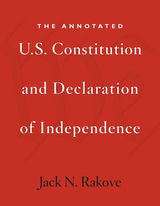
Here in a newly annotated edition are the two founding documents of the United States of America: the Declaration of Independence (1776), our great revolutionary manifesto, and the Constitution (1787–88), in which “We the People” forged a new nation and built the framework for our federal republic. Together with the Bill of Rights and the Civil War amendments, these documents constitute what James Madison called our “political scriptures” and have come to define us as a people. Now a Pulitzer Prize–winning historian serves as a guide to these texts, providing historical contexts and offering interpretive commentary.
In an introductory essay written for the general reader, Jack N. Rakove provides a narrative political account of how these documents came to be written. In his commentary on the Declaration of Independence, Rakove sets the historical context for a fuller appreciation of the important preamble and the list of charges leveled against the Crown. When he glosses the Constitution, the Bill of Rights, and the subsequent amendments, Rakove once again provides helpful historical background, targets language that has proven particularly difficult or controversial, and cites leading Supreme Court cases. A chronology of events provides a framework for understanding the road to Philadelphia. The general reader will not find a better, more helpful guide to our founding documents than Jack N. Rakove.
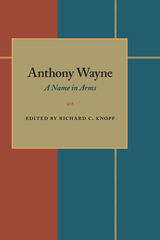
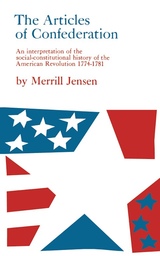
"An admirable analysis. It presents, in succinct form, the results of a generation of study of this chapter of our history and summarizes fairly the conclusions of that study."—Henry Steele Commager, New York Times Book Review
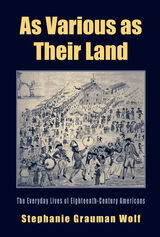
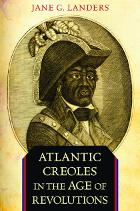
Sailing the tide of a tumultuous era of Atlantic revolutions, a remarkable group of African-born and African-descended individuals transformed themselves from slaves into active agents of their lives and times. Big Prince Whitten, the black Seminole Abraham, and General Georges Biassou were “Atlantic creoles,” Africans who found their way to freedom by actively engaging in the most important political events of their day. These men and women of diverse ethnic backgrounds, who were fluent in multiple languages and familiar with African, American, and European cultures, migrated across the new world’s imperial boundaries in search of freedom and a safe haven. Yet, until now, their extraordinary lives and exploits have been hidden from posterity.
Through prodigious archival research, Jane Landers radically alters our vision of the breadth and extent of the Age of Revolution, and our understanding of its actors. Whereas Africans in the Atlantic world are traditionally seen as destined for the slave market and plantation labor, Landers reconstructs the lives of unique individuals who managed to move purposefully through French, Spanish, and English colonies, and through Indian territory, in the unstable century between 1750 and 1850. Mobile and adaptive, they shifted allegiances and identities depending on which political leader or program offered the greatest possibility for freedom. Whether fighting for the King of Kongo, England, France, or Spain, or for the Muskogee and Seminole chiefs, their thirst for freedom helped to shape the course of the Atlantic revolutions and to enrich the history of revolutionary lives in all times.

Challenging the formidable tradition that places early New England Puritanism at the center of the American religious experience, Yale historian Jon Butler offers a new interpretation of three hundred years of religious and cultural development. Butler stresses the instability of religion in Europe where state churches battled dissenters, magic, and astonishingly low church participation. He charts the transfer of these difficulties to America, including the failure of Puritan religious models, and describes the surprising advance of religious commitment there between 1700 and 1865. Through the assertion of authority and coercion, a remarkable sacralization of the prerevolutionary countryside, advancing religious pluralism, the folklorization of magic, and an eclectic, syncretistic emphasis on supernatural interventionism, including miracles, America emerged after 1800 as an extraordinary spiritual hothouse that far eclipsed the Puritan achievement—even as secularism triumphed in Europe.
Awash in a Sea of Faith ranges from popular piety to magic, from anxious revolutionary war chaplains to the cool rationalism of James Madison, from divining rods and seer stones to Anglican and Unitarian elites, and from Virginia Anglican occultists and Presbyterians raised from the dead to Jonathan Edwards, Joseph Smith, and Abraham Lincoln. Butler deftly comes to terms with conventional themes such as Puritanism, witchcraft, religion and revolution, revivalism, millenarianism, and Mormonism. His elucidation of Christianity’s powerful role in shaping slavery and of a subsequent African spiritual “holocaust,” with its ironic result in African Christianization, is an especially fresh and incisive account.
Awash in a Sea of Faith reveals the proliferation of American religious expression—not its decline—and stresses the creative tensions between pulpit and pew across three hundred years of social maturation. Striking in its breadth and deeply rooted in primary sources, this seminal book recasts the landscape of American religious and cultural history.
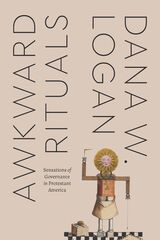
In the years between the American Revolution and the Civil War, there was an awkward persistence of sovereign rituals, vestiges of a monarchical past that were not easy to shed. In Awkward Rituals, Dana Logan focuses our attention on these performances, revealing the ways in which governance in the early republic was characterized by white Protestants reenacting the hierarchical authority of a seemingly rejected king. With her unique focus on embodied action, rather than the more common focus on discourse or law, Logan makes an original contribution to debates about the relative completeness of America’s Revolution.
Awkward Rituals theorizes an under-examined form of action: rituals that do not feel natural even if they sometimes feel good. This account challenges common notions of ritual as a force that binds society and synthesizes the self. Ranging from Freemason initiations to evangelical societies to missionaries posing as sailors, Logan shows how white Protestants promoted a class-based society while simultaneously trumpeting egalitarianism. She thus redescribes ritual as a box to check, a chore to complete, an embarrassing display of theatrical verve. In Awkward Rituals, Logan emphasizes how ritual distinctively captures what does not change through revolution.
READERS
Browse our collection.
PUBLISHERS
See BiblioVault's publisher services.
STUDENT SERVICES
Files for college accessibility offices.
UChicago Accessibility Resources
home | accessibility | search | about | contact us
BiblioVault ® 2001 - 2024
The University of Chicago Press



